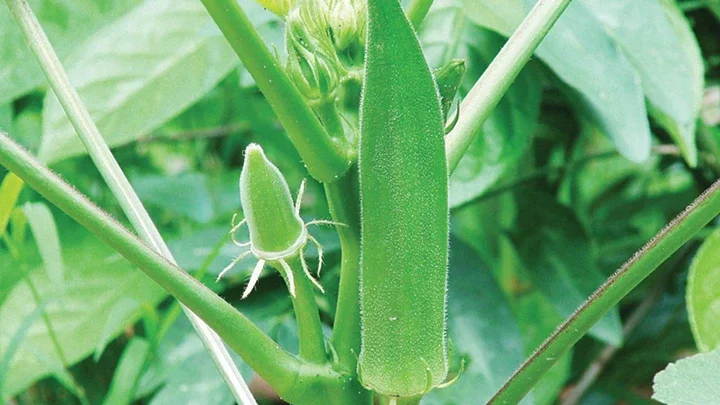This is actually not the best of time for Okra growers across the country, as the outbreak of a new virus ravaging okra farms has sent fear down the spine of the farmers.

NIHORT on alert to curtail potential threat to farmers
This is actually not the best of time for Okra growers across the country, as the outbreak of a new virus ravaging okra farms has sent fear down the spine of the farmers.
According to investigations, this epidemic has assumed a nationwide occurrence having been reported in Oyo, Ogun, Osun, Ondo, Ekiti, Lagos (South west) and Niger states.
The Guardian learnt that in areas where the outbreak has been reported, the epidemic had resulted in destruction of over 70 per cent of okra plantations.
Okra is a common vegetable extensively cultivated in Nigeria due to its high economic and nutritive value. It is grown in most parts of the country on both large and subsistent scale creating income for farmers. It also constitutes a veritable source of nutrients such as vitamins, minerals and protein.
The National Horticultural Research Institute (NIHORT), Ibadan, Oyo State, which broke the news at the weekend, said since the new virus was detected by its scientists, reports are being received from farmers across the country concerning the virus-like symptoms on farms, leading to rapid disease outbreak.
According to a statement from NIHORT, the institute said: "Observation by multidisciplinary team from NIHORT on ad-hoc visits to okra farms revealed unusual symptom in okra that consist of leaf curl associated with enations or outgrowths, which were distinct from the usual leaf curl and/or vein yellowing symptoms known with virus-infected okra plants.
"Also, high population of aphids and leafhoppers were observed on the leaves of okra plants in farms inspected. This epidemic has assumed a nationwide occurrence having been reported in Oyo, Ogun, Osun, Ondo, Ekiti, Lagos (South west) and Niger states.
"Farmers should look out for the symptoms of the new virus disease - high population of aphids and leafhoppers (vectors); and initial expression of small pin-head enations or outgrowths on the under surface of okra leaves.
"This is followed by a warty and rough texture of leaves, with leaves curling upwards. Affected plants show a twisting of the necrotic leaves becoming thick and leathery. The curling and enations are more prevalent on leaves that develop soon after infection than in former leaves, and okra plants are severely stunted with small fruits mostly deformed, which make them unfit for marketing," the statement read.
The institute noted that in view of the devastating and negative economic impact on okra farmers nationwide, NIHORT is on alert to curtail the outbreak, adding that the institute is creating awareness for the numerous stakeholders across the country on the potential threat to okra production.
"NIHORT feels it is expedient to keep farmers abreast of this development and the associated symptoms of this new virus attack, especially the farmers that are yet to experience the occurrence of these insect pests.
"Meanwhile, the palliative/interim control measure that could be adopted to contain these evasive vectors is spraying the okra farm(s) with synthetic insecticide at 20ml/15lt of water weekly under severe infestations, while research is being intensified on developing a sustainable Integrated Pest Management (IPM) package to arrest the new virus epidemic attacking okra production."
The institute advised farmers to consult its extension department at Ibadan; its outstations or websites for further enquiry on the virus.
















Comments